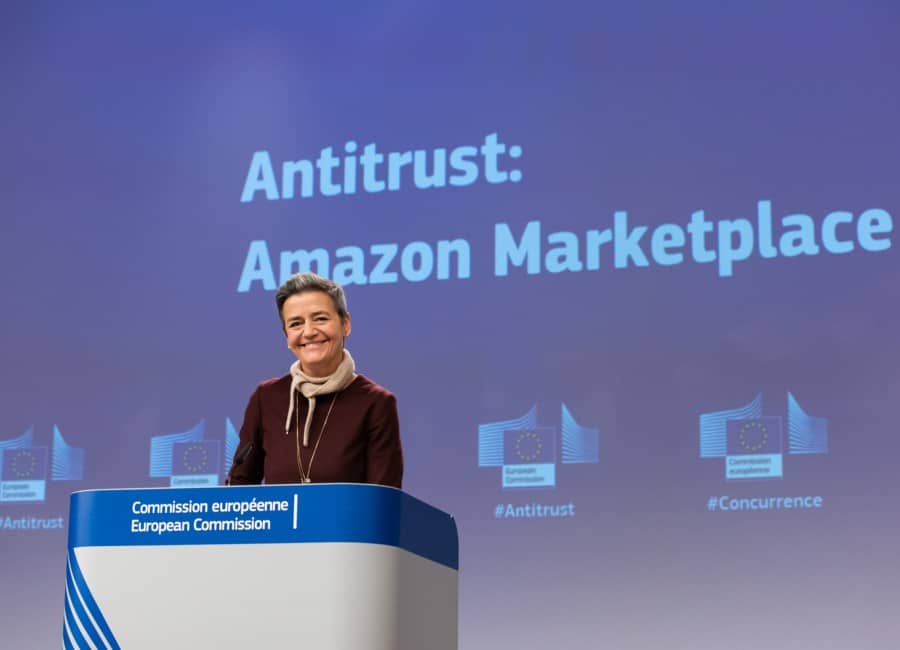Amazon has pledged to stop abusing its dominant position in EU markets by altering some ways its Marketplace operates.
On the Amazon Marketplace, independent sellers can sell products directly to consumers. At the same time, Amazon sells products on its platform as a retailer, in competition with those independent sellers.
As a result of this dual position, Amazon has access to large data sets about the independent sellers' activities on its platform, including non-public business data.
The European Commission raised competition concerns with Amazon over its use of non-public marketplace seller data. and over a possible bias in granting to sellers access to its Buy Box and its Prime programme.
A formal investigation commenced in July 2019 and the Commission has now accepted legally binding commitments from the American giant. The Commission said that Amazon has committed to:
- Improve the presentation of a second competing Buy Box offer by making it more prominent, and to include a review mechanism in case the presentation is not attracting adequate consumer attention.
- Increase the transparency and early information flows to sellers and carriers about the commitments and their newly acquired rights, enabling switching of sellers to independent carriers.
- Lay out the means for independent carriers to directly contact their Amazon customers, enabling them to provide equivalent delivery services to those offered by Amazon.
- Improve carrier data protection from use by Amazon's competing logistics services, in particular concerning cargo profile information.
- Increase the powers of the monitoring trustee by introducing further notification obligations.
- Introduce a centralised complaint mechanism, open to all sellers and carriers in case of suspected non-compliance with the commitments.
- Increase to seven years, instead of the initially proposed five years, the duration of the commitments relating to Prime and the second competing Buy Box offer.

Margrethe Vestager, executive vice-president in charge of competition policy, commented: “Today’s decision sets new rules for how Amazon operates its business in Europe.
“Amazon gathers a lot of data from the activities of independent sellers on the marketplace. It then uses the data collected on the marketplace for its own retail activities.
“In fact, Amazon's retail operations get many insights from sensitive business data of 800 000 active sellers in the EU. Amazon uses this data to make business decisions in its retail operations.
“So we were concerned that Amazon is able to take less risks than competing retailers active on its platform. This is because competing retailers have no access to such data."
Vestager added: "The second concern relates to the Buy Box, the box that you see when looking for a specific product on Amazon. The Buy Box offers the option to click and to buy easily and fast.
“The Buy Box represents over 90% of all views of offers on Amazon and the same high share of all transactions. So it is very important for sellers to have an unbiased access to that box. But we had concerns that the access to the box was favouring Amazon's retail operations.
“Our third concern was on the Amazon Prime programme. Prime users are rapidly growing in Europe and they are also the highest spending and most loyal consumer group on the Amazon marketplace.
“Unbiased access to Prime is therefore crucial for sellers. But we had concerns that access to Prime was favouring Amazon's retail and logistics operations."
Vestager stated that after this agreement Amazon can no longer abuse its dual role and will have to change several business practices.
"They cover the use of data, the selection of sellers in the Buy Box, and the conditions of access to the Amazon Prime programme," she said. “Competing independent retailers and carriers as well as consumers will benefit from these changes opening up new opportunities and choice.”
Photo: Margrethe Vestager. (Pic: Aurore Martignoni)








